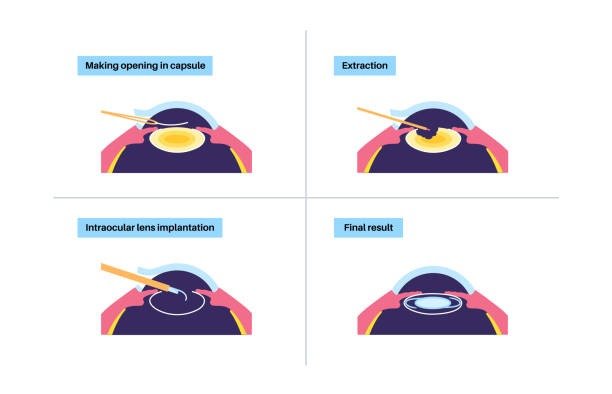Lens, the clear, flexible structure inside your eye is shaped a bit like an olive and sits right behind the iris, pupil, and cornea, helping you to see clearly. However, due to genetics or injury, the lens can become cloudy or stop working well over time.
When this happens, your vision gets blurry and you struggle to perform everyday tasks. Also, if the lens is too damaged, your doctor may recommend you to get a lens replacement surgery done.
If you are looking for Lens replacement London, Blue Fin Vision is a trusted name and you can book a consultation with them to discuss your case. But before that, let’s give you an idea of how lens replacement surgery works or what it involves.
What Is Lens Replacement Surgery?
To put it in simple words, lens replacement surgery involves removing your eye’s natural lens and replacing it with an article one, called an intraocular lens (IOL). This helps improve your vision by replacing the old lens which was no longer working.
This type of surgery is commonly done to treat age-related issues like cataracts, but it can also be used for other lens-related problems that occur due to injury or certain eye conditions.
Just so you know, lens replacement is also known as cataract surgery, clear lens extraction, or refractive lens exchange, especially if it’s done for correcting vision rather than just cataracts.
How Does The Procedure Work?
Lens replacement surgery is either done using a laser or traditional tools, but both methods involve creating a tiny opening in your eye’s outer layer, right above the natural lens. Depending on the technique used, the surgeon will either use a small scalpel or a laser.
Once the opening is made, the surgeon breaks up the cloudy natural lens using laser energy or a small ultrasound probe. After that is done, they remove the lens using suction and a clear artificial lens is placed in the spot.
In most cases, stitches are not required because the cut is small enough to heal on its own. Also, the whole process takes very little time, like about 20-30 minutes to complete.
Risks Involved In Lens Replacement Surgery
Like any other surgical procedure, lens replacement is not without risks. Though it is considered a safe way to improve vision, it carries some risks you should know about. Also, it is slightly more invasive than other procedures like SMILE or LASIK.
The good news is that most side effects are rare and treatable, and some of those include:
- High pressure inside the eye
- Halos
- Bleeding or infection inside the eye
- Droopy eyelid
- Retinal detachment
- Blurry vision
- Dislocated lens
- Redness, soreness, or itchiness
- Light sensitivity
These issues can sound concerning, but serious complications are very uncommon; however, you should still consult your eye surgeon if the symptoms don’t go away on their own.
How Long Does It Take To Recover After Lens Replacement Surgery?
The recovery time after lens replacement surgery can vary from person to person mainly because everyone heals differently. However, it usually takes about a week for most people to get back to their normal life and routine.
For those who need the surgery on both their eyes, it is performed one or two weeks apart, instead of the same day.
After the surgery is over, many people notice an immediate improvement in their vision, but the pupils may take time to go back to their normal size. This can cause temporary blurriness, but once your pupils are fine, you should be able to see just fine.
Lens replacement surgery is considered effective because it can help you see better in just 24 hours after the procedure. Even if you had a multifocal lens, your vision won’t take more than a few days to improve. As for those with mono-focal lenses, they may still need reading glasses.
It is often recommended to go for a follow-up visit about a week after the surgery, so your doctor can check your eyes and confirm everything is fine. If they detect no problem, you will be asked to come for a final check-up a month later when your eyes have healed fully.
Why Should You Consider This Surgery?
As you get older, the lens in your eyes becomes stiff and cloudy, causing cataracts, which can make it harder for you to see clearly. In some cases, cataracts are present from birth and are known as congenital cataracts. When this happens, doctors often recommend surgery within the first 6 weeks of birth.
Deciding if lens replacement surgery is right for you is something you should discuss with your eye doctor because only a professional can guide you better. In most cases, surgery is suggested when vision problems increase and start to interfere with your everyday life.
Lens replacement surgery is a simple and effective way to restore clear vision when your natural lens is no longer working well. But before you proceed, make sure to consult an eye specialist who can understand your problem and help.







Leave a Comment